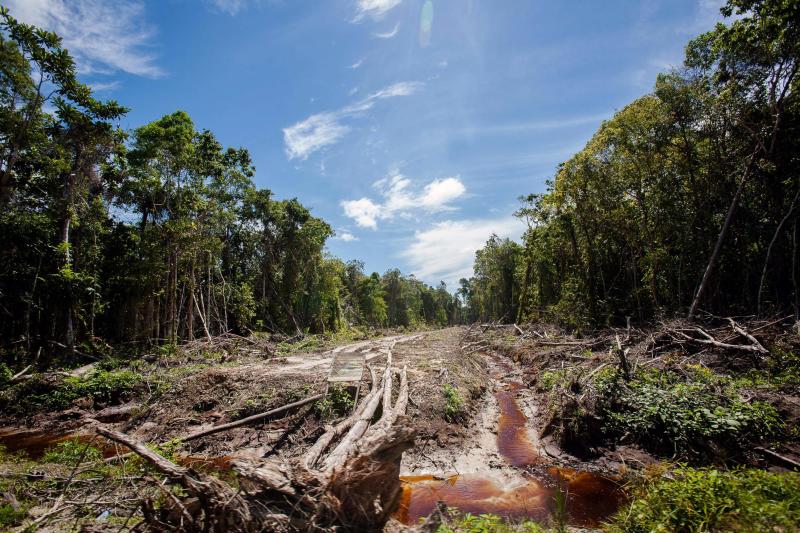Concern in Indonesia over Norway's move against biofuels derived from deforestation
Sign up now: Get insights on Asia's fast-moving developments

Indonesia's government as well its palm oil producers have expressed concern that other countries may follow Norway.
PHOTO: AFP
JAKARTA - Indonesia's government as well its palm oil producers have expressed concern that Norway may have set a precedent by becoming the first country in the world to exclude biofuels derived from deforestation.
The move by the Norwegian Parliament on Tuesday (Dec 4) will have a negligible impact on exports from Indonesia, which is the world's largest producer of palm oil.
"Although the impact will not be significant (on our exports), that will become a bad example for other countries," Dr Fadhil Hasan, the director for foreign affairs of the Indonesian Palm Oil Producers Association, told The Straits Times.
Figures show Indonesia shipped 4,521 tonnes of palm oil products to Norway last year, making up only a tiny fraction of the 31.05 million tonnes exported in total.
Dr Fadhil also questioned the legislation in Oslo as it came after Indonesia had recently concluded a comprehensive economic partnership agreement (Cepa) with the European Free Trade Association (EFTA), comprising Norway, Switzerland, Liechtenstein and Iceland. The agreement was intended to remove trade barriers among the parties involved, he said.
"The government must soon clarify this issue (with Norway)," Dr Fadhil said.
The director-general for foreign trade in Indonesia's Trade Ministry, Mr Oke Nurwan, has also expressed concern that other countries may follow Norway, which is enforcing the move from 2020. Mr Oke cited the European Union's decision to phase out the use of palm oil-based biofuel from its renewable energy mix beginning from 2030.
"The policy will certainly amplify the negative impression about palm oil products," he said.
The Norwegian parliamentary decision, nevertheless, was welcomed by environmental activists who regard it as a major step forward in saving the rainforests, protecting endangered species and biodiversity as well as help to avert climate change.
"This is a victory in the fight for the rainforest and climate," Rainforest Foundation Norway (RFN) said in a statement on Thursday.
"The Norwegian Parliament's decision sets an important example to other countries and underlines the need for a serious reform of the world's palm oil industry," Nils Hermann Ranum of RFN was quoted as saying.
The move was in response to all time-high consumption of palm oil-based biofuels in Norway last year. In 2017, the country consumed 317 million litres of palm-oil based biodiesel, representing 10 per cent of its overall diesel consumption, according to RFN.


